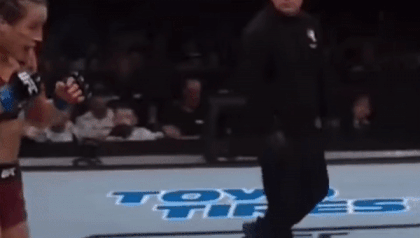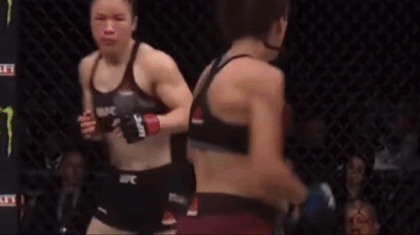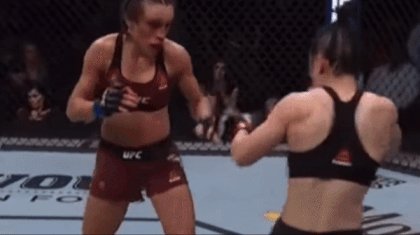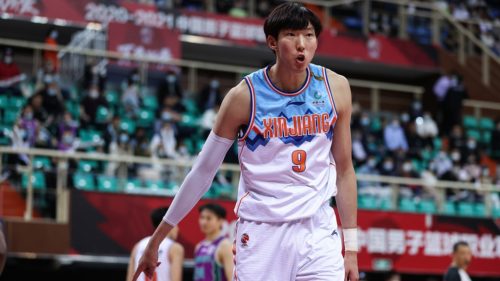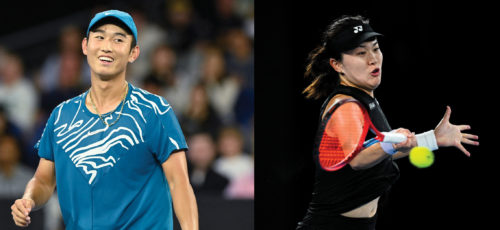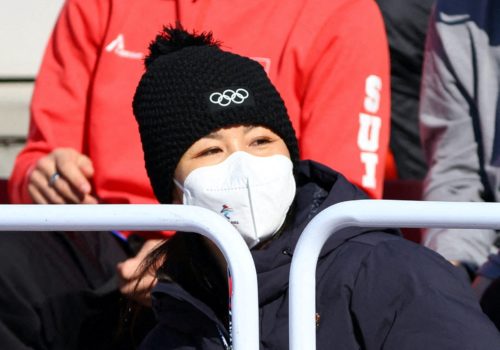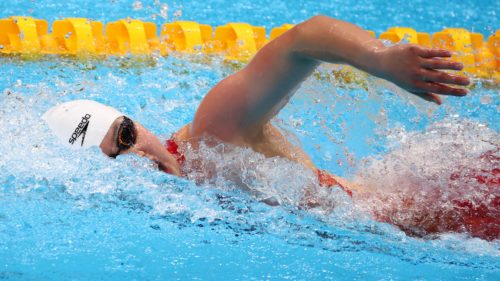Zhang Weili retains in instant classic, tipped by Dana White as UFC’s next big thing
This would have been hard to imagine a few years ago, but China now has a bona fide mixed martial arts star, a fierce and likable competitor who also wants to be a role model for the country’s young women.
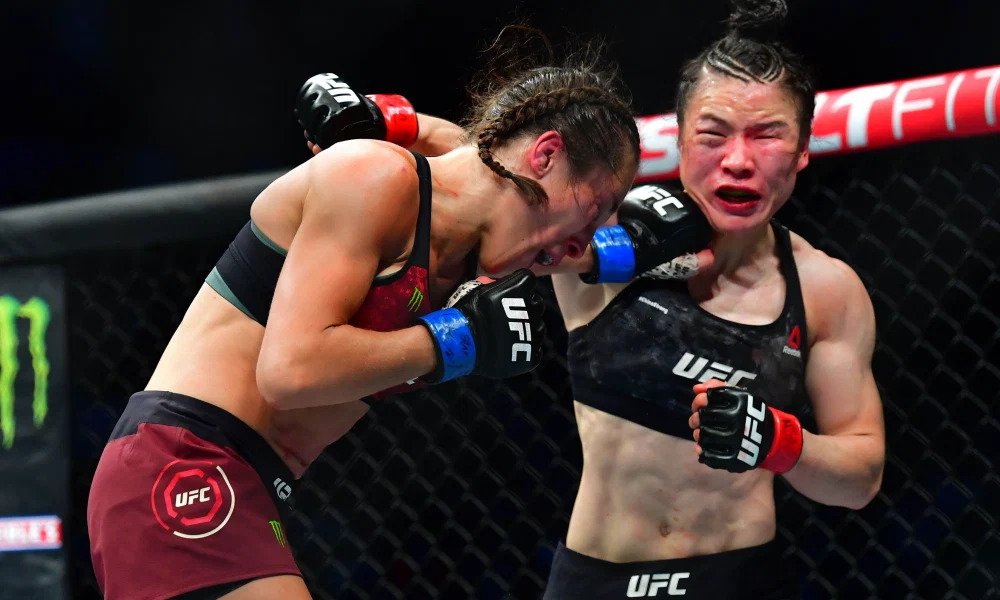
Zhāng Wěilì 张伟丽 successfully defended her UFC strawweight championship against Polish Muay Thai specialist Joanna Jedrzejczyk on Saturday at UFC 248 in Las Vegas. It was a bloody, brutal contest that fans recognized — both in the moment and afterwards — as one of the greatest fights in women’s MMA history.
This was Zhang’s first defense of her title, which she won at UFC Fight Night: Shenzhen in August via a shocking knockout of Brazil’s Jessica Andrade, becoming China’s first (and still only) UFC world champion. The 30-year-old is now 5-0 in the UFC.
Zhang and Jedrzejczyk were tabbed as a co-main event along with Israel Adesanya and Yeol Romero, but the women clearly stole the show, standing toe-to-toe for five rounds until the final bell. The slugging contest left both fighters bruised, battered, and bleeding.
Jedrzejczyk started the night the more lively of the two, putting Zhang under pressure. But as the round went on, Zhang found her strength and exchanged power punches with the Polish fighter.
The second round matched the first. A strong start by Jedrzejczyk was countered by sheer strength from Zhang, who also scored a takedown and stringed together some deadly punches.
A late head kick and headbutt from Jedrzejczyk dazed the Chinese champion, who was saved by the bell, but the effects did not linger: Zhang began Round 3 by landing some huge blows.
The champion began to slow during the fourth round, but Jedrzejczyk was never able to fully capitalize. The two fighters eventually stood in the middle of the octagon, exchanging blows. The ferocity of each punch stirred the packed-out T-Mobile Arena to a fever pitch, as people inside the arena realized they were witnessing something historic.
Neither women played it safe in the final round, even as blood ran out of Zhang’s nose while Jedrzejczyk’s head swelled to alien proportions. Neither would have looked out of place in a Rocky movie.
It was Zhang who found a second (or third, fourth) wind. Amazingly, even in Round 5 — which Zhang had never been to before — the Chinese star maintained her striking form, even catching Jedrzejczyk with a sweet left hook across the nose.
And then there was this dramatic final 10 seconds:
At the end, both women had a legitimate claim to the title. But when Bruce Buffer bellowed “And still…” — as in “still champion” — few could have argued this wasn’t the right call.
Dana White tips Zhang for global stardom
Afterwards, UFC president Dana White was effusive in his praise for Zhang, mentioning her in the same breath as Conor McGregor and Ronda Rousey in terms of potential star power.
“My phone was blowing up [with] everybody saying it was the greatest fight they’ve ever seen,” White said at a press conference. “Right here off the top of my head, I would have to say it was the best women’s MMA fight I’ve ever seen.”
“When you’re trying to build somebody into a star there’s a pattern to what you do,” he said. “We did it with Conor McGregor, we did it with Ronda [Rousey], we’ve done it with all the greats. And we’re gonna do it with her.”
This has been a theme since last summer with White and Zhang.
When I asked White in Shenzhen back in August about the career trajectory of Zhang and Chinese MMA in general, the UFC president was incredibly excited and clearly already plotting the Chinese champion’s path.
White made it clear that he wanted Zhang to fight in the U.S. to introduce her to the American market.
With Zhang’s biggest international test completed, and with her reputation secured as one of the hardest-hitting athletes in the sport, the sky is really the limit for her.
I first met Zhang in the build-up to her title shot last summer. The Hebei native, training out of her gym in the leafy northern Beijing suburb of Shunyi, struck me as someone who was super down-to-earth and relatable.
For Zhang, her personal goals of becoming a UFC champion almost seemed secondary to the responsibility she felt to help grow the sport in China — the home of martial arts, after all — and also to inspire young Chinese women to shed traditional labels and society’s expectations of them.
“I think girls are equal to boys,” Zhang said. “Girls can achieve what boys can. Girls have many possibilities. You should not be simply defined as gentle or weak, you can also be brave, hardworking, persistent, and independent. Never let those ‘titles’ define or limit you.”
What’s next for Zhang?
After Saturday’s fight, Zhang was interviewed on the Ariel Helwani MMA Show and told the host that her immediate plan was to take some time off.
“It’s possible we’ll have the opportunity to fight again,” she said. “Since I won the title [August 31 last year], I didn’t have a vacation or a holiday, I was just training all day long, all the time.
“Now I just want to relax and have a vacation, and then I can think about who comes next.”
For now, the name on everybody’s lips is Valentina Shevchenko. The Ukrainian flyweight champion — one weight up from Zhang — was in attendance at UFC 248 and has since been doing the media rounds, calling out Zhang.
Brian Butler, Zhang’s manager, said that Zhang could be interested in this super clash between the champions.
But staying at 115 pounds, the likely next opponent for Zhang will be the winner of a fight between two Brazilians on April 18 at UFC 249. Rose Namajunas will take on Jessica Andrade in a rematch of a title fight from last May, when Andrade won the title.
Namajunas, who also successfully defended her title against Jedrzejczyk not once but twice, has other big scalps on her record, including Michelle Waterson and Paige VanZant.
However, she suffered a brutal KO to her countrywoman Andrade last May after taking a WWE-style slam. Both women will be eager to get another shot at the title Zhang currently holds.
Also see:
How coronavirus, nationalism shaped the Zhang Weili vs. Jedrzejczyk epic
